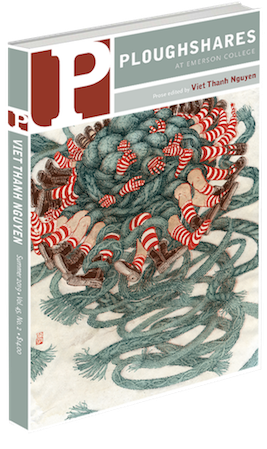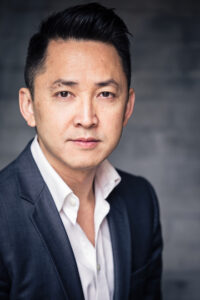Introduction
Every time I am asked to edit something, I tell myself, Don’t do it. You hate editing. And every time I finish editing something, I am always relieved. Nothing has differed for this issue of Ploughshares. So why did I take on the guest editor role?
Because editing matters.
I am committed to literature as art and as a way of making change in the world, but the reality is that much of what happens in the world of literature does not happen only with the words of writers. Literature is distributed by the publishing industry, which is made of gigantic, corporate houses to smaller publishers that remain crucial to finding those writers whose work does not adhere to corporate demands: the independent, the academic, the avant-garde, and so on. The decisions that publishers and editors make determine what readers see when they go to the bookstore or look for work online. It is hardly a surprise that the worldviews of publishers and editors influence their literary taste and judgment; those worldviews are influenced by privileges, assumptions, and prejudices that are often invisible to those who hold or benefit from them.
It is critical, then, to have a publishing industry as diverse as the world is. That’s far from the case today. That’s why I edited this issue—to play the role of editor for a little while, and to introduce my taste and judgment into a part of the literary world. Also because Ploughshares rejected my short stories (checks my Excel spreadsheet) nine times, but who’s counting? Well, me, obviously.
Quantification runs counter to the sensibilities of many people in the literary world; we prize the unquantifiable: intuition, talent, genius, and so on. But while literary change does happen when the undeniable talent of writers from under-represented populations forces readers to see the world in new ways, literary change at the structural level will not happen without quantification. We will not be able to see how prejudiced our tastes are if we do not track who we are publishing and who we are hiring.
This is why I wrote my short story collection with a spreadsheet that helped me see the demographics of my characters, allowing me to ensure that I was not writing stories about the same kind of person over and over. I did not trust that I would be unprejudiced, as none of us should. We need to work in environments with a diversity of people to make sure that the views of others who are different from us can check us; likewise, we need literature written from a variety of perspectives and by a wide range of authors for the same reason—so that literature itself can demand that we see the world differently from how we normally might.
I hope that the fine writers and works that I have selected will do exactly this kind of work.

